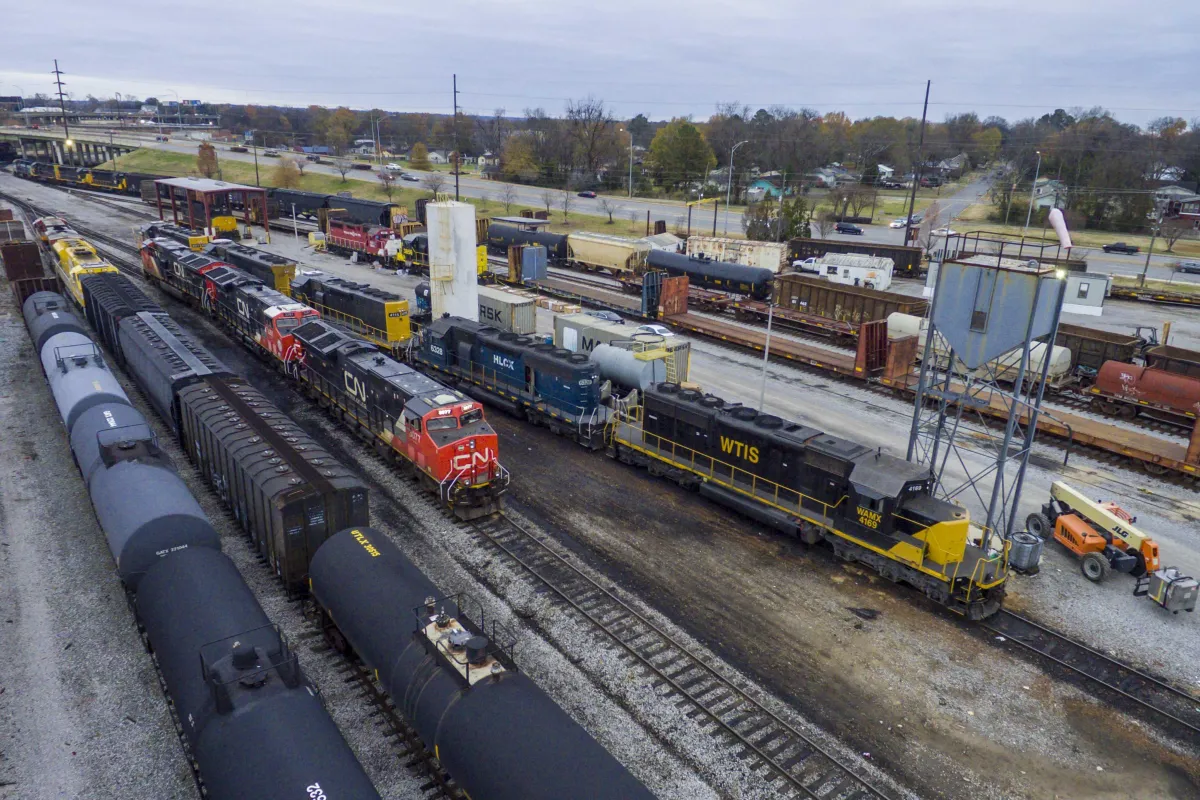
The Benefits and Challenges of Shipping by Rail: Latest Industry News

The Benefits and Challenges of Shipping by Rail: Latest Industry News
In today's fast-paced world of logistics and supply chain management, transportation modes play a critical role in ensuring products move efficiently across the country. Rail transport, while often overshadowed by trucking and air freight, remains an essential mode of transportation, particularly for bulk commodities and long-haul shipments. In this blog, we will explore the benefits and challenges of shipping by rail and highlight the latest developments in the railroad industry.
Benefits of Shipping by Rail
Cost Efficiency
One of the most significant advantages of rail shipping is its cost-effectiveness. Rail transport is particularly suitable for bulk shipments, such as coal, chemicals, or agricultural products. Trains can carry large quantities over long distances at a lower per-unit cost compared to trucks, making it a go-to option for industries focused on lowering transportation expenses.Energy Efficiency and Environmental Benefits
Rail transport is more fuel-efficient than trucks, using less fuel per ton-mile. This results in lower greenhouse gas emissions, making rail an environmentally friendly option. In an era where sustainability is becoming a priority, many companies are turning to rail as a greener alternative for their logistics needs.Capacity for Large Loads
Trains can carry significantly more freight than trucks in a single trip, making them ideal for industries that need to move large volumes of goods. For example, automotive, mining, and steel industries benefit from rail’s ability to handle heavy, bulk goods without putting strain on road networks.Long-Distance Advantage
For long-distance transportation, rail has a clear advantage over trucks. Rail lines provide direct routes across vast areas, making it a highly effective solution for transporting goods over hundreds or even thousands of miles.
Challenges of Shipping by Rail
Limited Flexibility
Rail transport can be less flexible compared to trucking. While trucks can deliver directly to any location with road access, trains rely on rail infrastructure. This means that unless a business has direct rail access, goods need to be transferred from rail to truck, adding complexity and cost to the supply chain.Slower Transit Times
Compared to trucking, rail transport can be slower, especially when dealing with shorter distances. Trains often need to make stops, and there may be scheduling conflicts that can cause delays. Businesses with time-sensitive goods may find this to be a disadvantage, particularly in industries like retail, where just-in-time delivery is essential.Infrastructure Dependency
Rail shipping depends on the condition and availability of infrastructure. In some regions, aging or insufficient rail networks can pose challenges. Furthermore, disruptions such as labor strikes or natural disasters can have a significant impact on rail operations.Initial Costs and Investment
While rail can save costs in the long run, the initial investment required to establish rail infrastructure can be prohibitive. Companies that wish to integrate rail into their logistics strategy may need to invest in dedicated rail spurs, warehousing, and other facilities, increasing upfront expenses.
Latest Industry News and Developments
The rail industry has been undergoing some significant shifts, both in terms of technology and operations. Here’s a look at some of the latest news:
Rail Labor Disputes and Their Impact on Supply Chains
In recent months, the rail industry has faced labor strikes and disputes, which have threatened to disrupt supply chains nationwide. A notable example is the 2023 strike threats, which caused significant concern among shippers. Although strikes were averted, these disruptions highlighted the vulnerabilities of relying solely on rail for transportation.Investment in Rail Technology
Rail companies are increasingly adopting new technologies to modernize their operations. Innovations such as automated trains, better railcar tracking, and AI-based scheduling tools are becoming part of the industry. These advancements are aimed at improving efficiency and reducing the risk of human error, helping railroads stay competitive with other modes of transportation.Sustainability Initiatives
Rail companies are actively working to reduce their carbon footprint. Recent efforts include the adoption of hybrid-electric locomotives and the exploration of hydrogen-powered trains. These sustainable initiatives align with broader industry trends toward reducing emissions and achieving net-zero goals.Supply Chain Bottlenecks and Rail’s Role
As global supply chain disruptions continue, rail has played a key role in helping alleviate bottlenecks at major ports. During times when trucking capacity is constrained, rail has served as an essential alternative for moving goods inland, providing relief to congested transportation networks.
Conclusion
Rail transport continues to be a vital component of the U.S. logistics network, offering significant advantages in terms of cost and environmental benefits, particularly for long-distance and bulk shipments. However, the challenges, such as infrastructure dependency and slower transit times, must be weighed against these benefits. As the rail industry embraces technology and sustainability, it will remain a critical player in the future of supply chain operations.
For businesses looking to optimize their supply chains, understanding the role of rail and keeping abreast of the latest developments is essential for making informed decisions.
For more insights into supply chain optimization, logistics strategies, and transportation trends, explore other resources on Hoffman Supply Chain Advisors or reach out to discuss how rail can fit into your transportation strategy.

